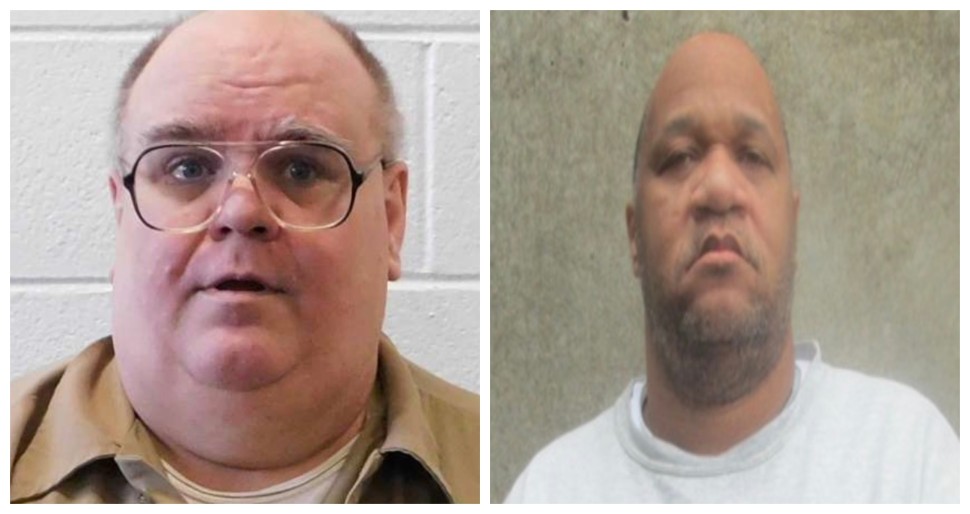
Two more inmates, located in Alabama and Oklahoma, respectively, are slated for execution Thursday as the nation continues to mark its deadliest week on death row in 20 years.
Emmanuel Antonio Littlejohn, 52, and Alan Eugene Miller, 59, were both convicted on murder charges in the '90s and have spent decades awaiting their fate.
They're scheduled to die eight hours apart.
Their executions are among five scheduled across Alabama, Missouri, Oklahoma, South Carolina, and Texas, this week alone.
Emmanuel Antonio Littlejohn
Littlejohn was 20 years old when he and co-conspirator Glenn Bethany robbed an Oklahoma City convenience store in 1992.
Root-N-Scoot owner Kenneth Meers, 31, died from a gunshot wound to the face, but there was confusion among witnesses over who fired the deadly shot, according to USA TODAY.
Both co-defendants were convicted of first-degree murder in Meers' slaying, but Bethany was sentenced to life in prison, while Littlejohn was condemned to death.
"This is not a clear case," death row spiritual advisor Reverend Jeff Hood told the paper in July. "This is a case where we have a number of issues, a number of problems."
Advocates are pleading for Gov. Kevin Stitt to grant Littlejohn clemency.
As his execution date creeps closer, Littlejohn says waiting to learn if he'll be saved from death row has been "the hardest thing I ever did," according to the outlet.
Oklahoma executes inmates one of four ways: lethal injection, nitrogen hypoxia, electrocution, or firing squad.
Alan Eugene Miller
Miller was 34 years old when he killed his three co-workers over rumors swirling around his sexuality.
"I'm tired of people starting rumors on me," Miller told a witness, according to USA TODAY.
Miller fatally shot Terry Jarvis, 39, Lee Holdbrooks, 28, and Christopher Yancy, 32, at two separate work sites in Birmingham, Alabama in 1999 after he believed the trio were telling people he was gay.
Although a forensic psychologist found Miller was "mentally ill at the time of the offenses," a judge still sentenced him to death.
"... Miller suffered from a delusional disorder that substantially impaired his rational ability," court documents read, the paper reported. "This delusional disorder − coupled with Miller's history as a loner − resulted in Miller's believing the people he worked with talked about him and that they had spread rumors about him."
Earlier this year, a federal judge dismissed attempts by Miller's attorneys to put a stop to his execution.
He is slated to die by nitrogen hypoxia.




